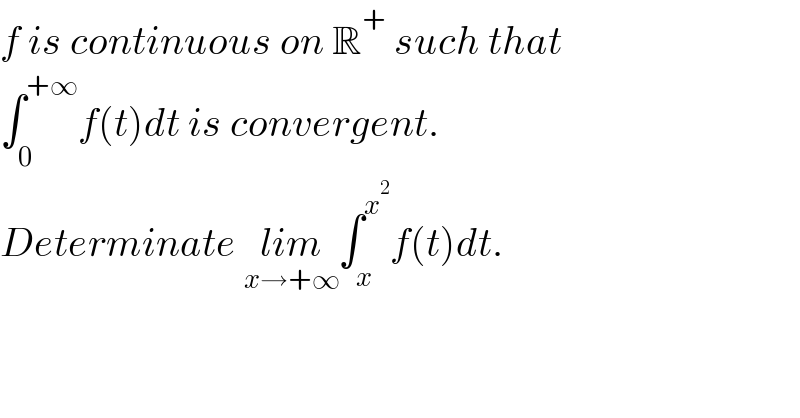
Question and Answers Forum
Question Number 169792 by mathocean1 last updated on 08/May/22

Answered by aleks041103 last updated on 08/May/22
![let F(x)=∫_0 ^( x) f(t)dt then by problem construction lim_(x→∞) F(x)=a lim_(x→∞) ∫_x ^( x^2 ) f(t)dt=lim_(x→∞) [F(x^2 )−F(x)]= =a−a=0 ⇒Ans. 0](Q169793.png)
| ||
Question and Answers Forum | ||
Question Number 169792 by mathocean1 last updated on 08/May/22 | ||
 | ||
Answered by aleks041103 last updated on 08/May/22 | ||
![let F(x)=∫_0 ^( x) f(t)dt then by problem construction lim_(x→∞) F(x)=a lim_(x→∞) ∫_x ^( x^2 ) f(t)dt=lim_(x→∞) [F(x^2 )−F(x)]= =a−a=0 ⇒Ans. 0](Q169793.png) | ||
| ||